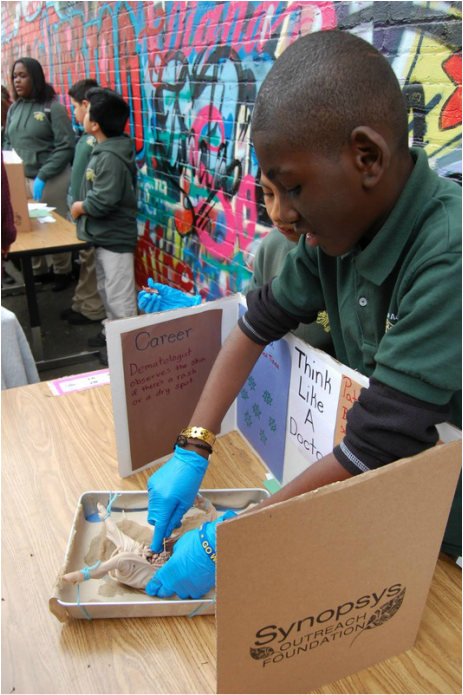
UPA’s learning model is key to addressing the challenges of supporting our diverse group of learners who represent a wide
range of academic, emotional, language, and literacy skills.
We organized this model into three strategies:
PROJECT-BASED LEARNING emphasizes hands-on experiences of academic content, collaboration, and relational skills. Projects pose real-world challenges and inquiry, connecting students’ academic experience to their local and global communities. Through projects, students are able to truly engage in a deep exploration of content application and real-world skills.
STANDARD BASED INSTRUCTION: UPA implements standard based instruction using the OUSD's adopted Curriculum.
SOCIAL EMOTIONAL LEARNING prepares students to be self-reflective, emotionally intelligent stewards of their community, build strong relationships, and be able to accelerate and drive their own learning in two ways.
First, students have daily Crew classes designed to help students expand their self-knowledge, growth mindset and relational skills through the habits of success and goal-setting. Secondly, the academic curriculum is designed so that learning is directly linked to these habits and goals.
1:1 Mentoring: Every other week, students meet with an staff member at UPA during mentor time to discuss academic, social, and personal goals.
range of academic, emotional, language, and literacy skills.
We organized this model into three strategies:
PROJECT-BASED LEARNING emphasizes hands-on experiences of academic content, collaboration, and relational skills. Projects pose real-world challenges and inquiry, connecting students’ academic experience to their local and global communities. Through projects, students are able to truly engage in a deep exploration of content application and real-world skills.
STANDARD BASED INSTRUCTION: UPA implements standard based instruction using the OUSD's adopted Curriculum.
SOCIAL EMOTIONAL LEARNING prepares students to be self-reflective, emotionally intelligent stewards of their community, build strong relationships, and be able to accelerate and drive their own learning in two ways.
First, students have daily Crew classes designed to help students expand their self-knowledge, growth mindset and relational skills through the habits of success and goal-setting. Secondly, the academic curriculum is designed so that learning is directly linked to these habits and goals.
1:1 Mentoring: Every other week, students meet with an staff member at UPA during mentor time to discuss academic, social, and personal goals.
